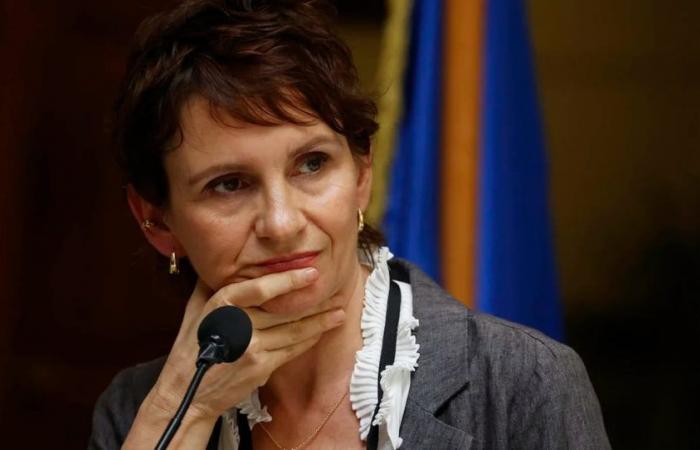
The government of Chili urged this Thursday Venezuela to make greater efforts in fight against organized crime and intensify its cooperation with the countries of the region.
Carolina Tohá, Minister of the Interior in the government of Gabriel Boric, is in charge of defining the strategy to suppress crime and working together with her Latin American counterparts, in order to deepen alliances and achieve better results. Thus, she has reached collaboration agreements with Ecuador, Peru and Bolivia although, in the case of Caracas, the position of the Nicolás Maduro regime leaves much to be desired, he said in an interview with Bloomberg.
“There are strategies with the entire region. With some countries it has been easier than with others… with Venezuela it has been complex,” he commented before adding that his portfolio has requested information from the Miraflores Palace on citizens suspected of crimes both in the country and abroad but has not received any information. received response yet. “Venezuela has certain international obligations with us and at a multilateral level that it must comply with,” he noted in this regard.
The requests for cooperation come a few months after the body of Ronald Ojeda in the commune of Independencia, a case in which the main suspects are the regime and the Venezuelan criminal organization The Aragua Train.
On the night of March 1, the Chilean Police ended their intense nine-day search after finding the former Venezuelan soldier dead “in a cement structure, inside a suitcase” in an irregular camp. His case had become one of the authorities’ priorities since it was a former political prisoner who was captured at his home by subjects sent by the regime disguised as local immigration officersas a video from security cameras showed.
Shortly after confirming his death, the Police managed to find some of the suspects involved in the crime, one of them Walter Rodríguez Pérez, leader of the criminal gang. However, the attorney general of Caracas, Tarek William Saabsuggested that the Chilean Intelligence services had been responsible for the crime.
It was an operation designed to “attack the Venezuelan State” and “cloud” relations between the countries, with “spurious interests,” said Saab, to which Boric sent a note of protest given that the comments “reveal that “There is no adequate will to resolve a case that is tremendously complex.”. “When the institutions of our country are insulted, denigrated or questioned, what we have to do is act very clearly and firmly,” he added.
In this context, Chile increased its alert level due to the presence of these criminalsnot only within the country but throughout the area. “The Aragua Train has hit the entire Latin American region. Venezuela has a theory that they dismantled the hierarchy of that gang but the truth is that we have seen the gigantic dynamism that organized crime has,” Tohá explained. In fact, its expansion is linked to the exodus of more than seven million Venezuelans in the last decade as well as the rise in rates of kidnappings, drug trafficking and murders.
However, the Minister highlighted that Boric’s management achieved a 6% decrease in homicides in 2023, after the increase that had occurred in 2022. Likewise, she noted that the indications from the first quarter of this year suggest that “it is better than last year although it is still early.” “We have to maintain that inflection over time to be able to say that we managed to break this upward curve that had been going on for a long time,” she continued.
This achievement responds, in large part, to anti-crime bills that include the creation of a Ministry of Public Security, the protection of critical infrastructure and the reinforcement of fighting capacity in municipalities, which are already under debate in The congress.
In any case, the latest records also showed an increase in violent crimes in the country and left the above in the background, increasing the negative perception of the Government. “For the public it is a very big shock to see that more violent crimes are committed in Chile that we previously only knew about from movies… now we see it in the streets,” Tohá concluded.





